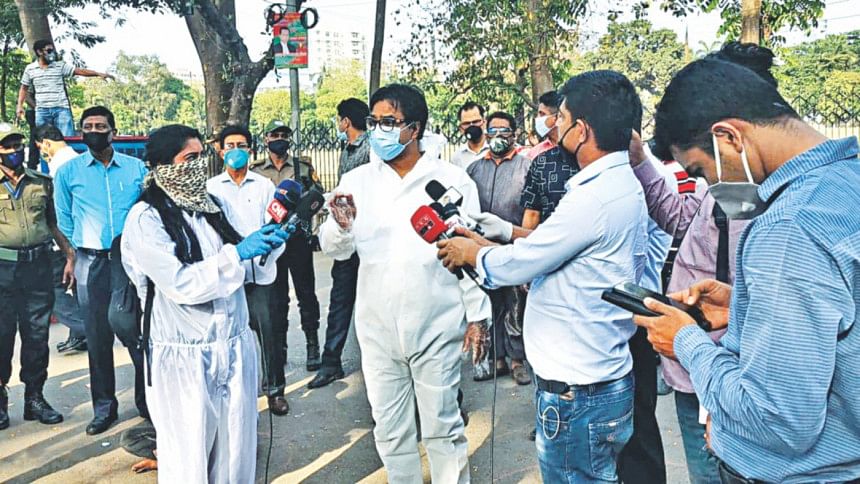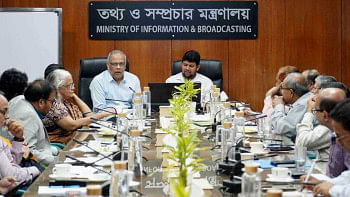Defeating the Four Horsemen of the Apocalypse

A friend enquired whether the four horsemen of death, famine, war and conquest are anywhere to be seen given the current pestilence followed by the recent fires, floods and exodus of millions. Set aside the religious connotation, it is generally agreed that we are globally experiencing an existential threat. The present lockdown offers us the opportunity to reflect on our immediate future. Here are some thoughts.
On April 10, the world recorded nearly 1.6 million corona infections, 95,000 deaths and 3,55,000 recoveries. The US leads, followed by Spain, Italy, France, Germany, China and others. The trend is somewhat exponential and there is no WHO-approved remedy in sight, except that people are advised to practice physical distancing. Based on Chinese and Korean experience, the epidemiologists believe that such a practice reduces the degree of spread of the virus allowing the health service providers to cope with the crisis. "Save Lives" has become a de-facto global goal for all. Corona has become the ultimate leveler—education, wealth, social standing, colour, religion, ethnicity, gender, and nationality hardly matter.
Compared to China, Europe and America the South Asian countries seem fortunate but these are early days, and there is no room for complacency. Some South East Asian countries (e.g., South Korea, Taiwan and Singapore) may have deflected COVID-19 reasonably well. South Asia and others should learn from the South East Asian experience.
Figures from John Hopkins Coronavirus Resource Center give us a global real-time snapshot, and Bangladesh's situation looks favourable compared to many other countries, if the figures are reliable—61 infections, 6 deaths and 26 recovered (April, 4). The Government of Bangladesh have demonstrated its commitment to face this pandemic with courage and the prime minister has announced policies for the poor, businesses and general population to withstand the expected fallout of COVID-19. The citizens wholeheartedly support the government's guidance. The armed forces have stepped in to support the civil administration, which has been welcomed generally. Notwithstanding the figures on Bangladesh, there are some serious concerns and they need to be reviewed.
Assumptions
It appears that Bangladesh's situation is subject to a series of assumptions. They are: First, all COVID-19-like symptoms-affected people have been tested. This pre-supposes that people with such symptoms sought medical care and they were subsequently sent to appropriate medical facilities.
Second, all deaths (not registered as Corona-induced) with symptoms like cough, fever, difficulty breathing, pneumonia in both lungs (https://www.canada.ca/en/public-health/services/diseases/2019-novel-coronavirus-infection/symptoms.html) have been tested. This pre-supposes that all people who have died recently and had corona-like symptoms sought medical help and their samples were sent for effective testing.
Third, people, who have been socially together with the "positive" tested persons (alive or dead) have also been tested. This pre-supposes that the health officials kept an eye on these people.
Fourth, those who were tested "positive", effectively practiced physical distancing at home and outside. This pre-supposes that these people and their family members have practiced physical distancing.
Fifth, the testing kits used were reliable. Given that certain brands of the kits were proved ineffective in Spain and Italy, this pre-supposes that we undertook quality control before using such kits.
Sixth, the personnel using the kits are skilled enough to understand the instructions. This also pre-supposes that the users fully understood the instructions. Recently, the Chinese suppliers have cautioned users about it.
The question is whether these assumptions hold in the case of Bangladesh. If any one of the assumptions don't, the aforementioned data given for Bangladesh are unlikely to reflect the true picture. It will be true of other countries, let alone Bangladesh. Therefore, it is realistic to assume that there are untested corona cases in Bangladesh, which are and will remain potential sources of COVID-19 spread. The return of numerous hardworking migrant workers to their villages using overpacked transport could be one of many such sources of dissemination of COVID-19. In addition, prayer congregations in mosques, temples and churches could be another potential source.
In order to pursue "Save Lives" goal we need to understand our situation in the context of four-stage framework. Stage-1 (imported cases of COVID-19, which are relatively easily traceable); stage-2 (imported cases and transmission within family and friends, which can still be traceable); stage-3 (community is affected, which becomes untraceable); and stage-4 (mass scale infection, which becomes a serious public health threat). Where are we now? Most likely we are still in stage-2.
In stage-2, Bangladesh's livelihood environment will start to become insecure. As in other countries, unemployment will increase, food availability will become problematic, health infrastructure will face severe stress, and due to prolonged lockdown people will look for "escape routes" putting law enforcing agencies under huge challenge and scrutiny, businesses will face liquidity crisis and supply chains will be threatened. If the period of lockdown is increased, which is quite likely, the transition to stage-3 will take the stage-2 factors to an even more acute level. The "Save Lives" goal requires an inter-related system of four strategies, they are:
Strategies
First strategy: Ensure a smooth food supply chain for all. Assuming that Bangladesh doesn't have a strategic food reserve of more than a season, we must ensure access to suitable (macro and micronutrient) and sufficient food for all. This pre-supposes that the food is available. Under current reality, importation of food might be difficult, as there will be a "me-first" policy adopted across the world. Therefore, domestic production must get absolute priority. The farming population should be protected by any means to safeguard agricultural production. In addition, the agricultural land presently not used for other purposes, e.g., housing, should be used for cultivation. In France, the urban educated class is responding to calls of the farmers to work in the field. Special care should be given to children, expectant and nursing mothers and adolescents under the motto "save our future".
The food supply and distribution should be handled in the most cost-effective, cost-efficient and equitable manner. Community-Based Programmes with the participation of local government, army, civil society and police should ensure that the food delivery is made to all families. The government could contemplate reducing gasoline price given the fall of petroleum price in the international market. A general Food-for-Work Programme may be initiated for those who will assist the farmers. The farmers should have easy access to all agricultural input-support and expertise. The government should consider importation of food grains to establish a strategic food reserve as part of mid to long-term plan to avoid crisis in the future.
Second strategy: Ensure corona-specific health services. Regarding Health Services, Bangladesh can just pursue "Follow the Leader" approach. Other than experts, such as, WHO, Bangladesh can seek information and advisory support from countries, which are experiencing and managing the corona carnage and have already gathered together valuable lessons. Second, the Bangladeshi diaspora, who are actively involved in the health care system in many countries, are sharing their advice on social media. They should be approached for guidance. Third, the transformation of hospitals into "Corona Care Units" should happen without disbanding other emergency services. In addition to support for physical health, provisions should be made for mental health. Whatever time we have should be utilised most effectively before the window shuts. It is a race against time.
Third strategy: Ensure a congenial social, legal and institutional ecosystem. The "Save Lives" goal can only be achieved if the activities occur under a favourable governance environment. If the Corona crisis prevails for another month or more, the business sector will be in crisis. Job and income losses, and fall of remittance are likely immediate impacts, challenging the livelihood of others. These factors will force people to break out of self-isolation in an attempt to find other options to survive. This could create a serious law and order crisis, and thus undermine country's peace and security. Therefore, a concerted government effort is required, which will bring together all the main societal stakeholders. In order to save lives our approach should be to unite and work together irrespective of party affiliation, religion, ethnicity, professional strata and economic standing. Failing to do so will result in social injustice and greater fragility within our society.
Fourth strategy: Devise a gradual exit strategy from the present lockdown situation. While the country prepares for a possible stage-3 situation and a possible extension of the present lockdown, we also need to plan an exit strategy. The government may engage various working groups led by experts, practitioners, academics and scientists, who will craft strategies to explore opportunities in the post-corona environment. Revival of export market, rebuilding of the business sector, export-friendly currency and monetary policy, introduction of the post-corona safety net for the affected population, restructuring of the public health service delivery, and pro-people governance.
We are experiencing a unique event—a global pandemic—and this calls for a new but immediate partnership among the private, public and non-profit sectors. Uncoordinated approach to this once-in-a-lifetime challenge will cause irreparable damage. This has to be avoided at all costs as the pandemic can easily become a spiralling cycle of destruction given our existing fragilities. On the other hand, the corona crisis can be an opportunity to transform and create a "new Bangladesh", which will empower all its citizens to re-embrace the freedom of independence on our 50th anniversary in 2021.
Manzoor Hasan, Barrister-at-Law, Executive Director, Centre for Peace & Justice, Brac University. Email:[email protected]. Dr Sanaul Mostafa, Senior Adviser in International Development, Ottawa, Canada. Email: [email protected]. The views expressed in this article are those of the authors and do not necessarily reflect the position of Brac University.

 For all latest news, follow The Daily Star's Google News channel.
For all latest news, follow The Daily Star's Google News channel. 



Comments